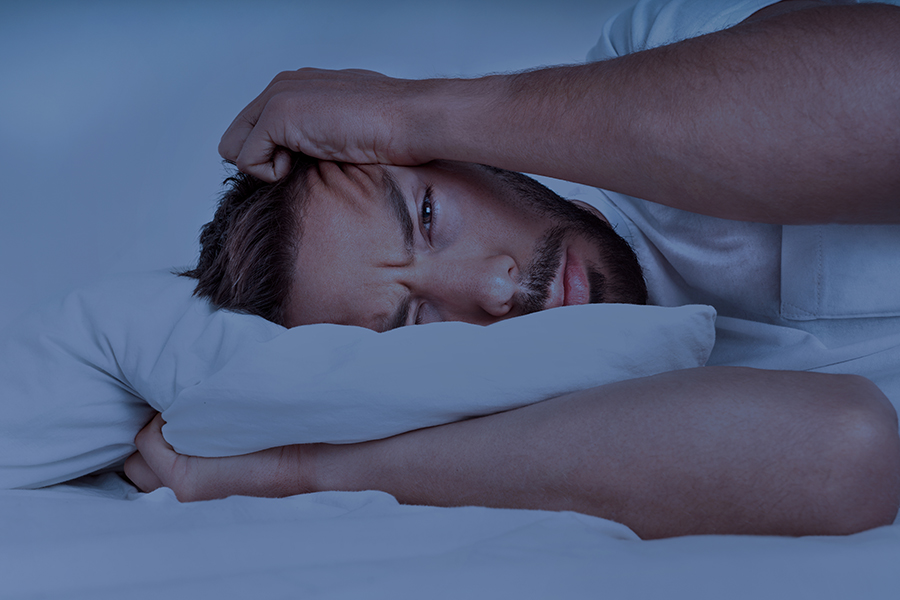A good night’s sleep is vital to our health and wellbeing, and not being able to sleep well has a detrimental impact on our mental health. At our private rehabilitation centre, we take a holistic approach to recovery and have seen that sleep coaching is highly beneficial for our clients in so many ways.
In this article we wanted to explain the links between sleep problems and addiction, how sleep coaching works and offer you some tips to achieving a better night’s sleep. If you need help, please don’t hesitate to get in touch with our addiction recovery experts.
What is the link between sleep problems and addiction?
Sleep issues are very common for our patients to experience during our addiction treatment programme and many report always having issues with sleep. The link between sleep problems and addiction is complex, but more studies are showing that it is a serious issue.
In the first place, when we take drugs or drink alcohol it affects and disrupts the sleep-regulatory systems in our brain. Depending on what substance you use, sleep is affected differently, but they all change how long it takes us to get to sleep, how long we sleep for and also the quality of our sleep.
An interesting article on the Connections between Sleep and Substance Use Disorders by Dr. Nora Volkow, explains the science behind why we sleep and addiction are so closely linked. She explains, “Substance use causes sleep problems; but insomnia and insufficient sleep may also be a factor raising the risk of drug use and addiction” and adds, “We now know that most kinds of substance use acutely disrupt sleep-regulatory systems in the brain, affecting the time it takes to fall asleep (latency), duration of sleep, and sleep quality. People who use drugs also experience insomnia during withdrawal, which fuels drug cravings and can be a major factor leading to relapse. Additionally, because of the central role of sleep in consolidating new memories, poor quality sleep may make it harder to learn new coping and self-regulation skills necessary for recovery.”
She stresses the importance of recognizing this factor during the recovery process and to prevent addictive behaviours developing. We certainly see this first hand and our patients have found sleep coaching a very important tool in their recovery.
What is sleep coaching?
As someone with a wealth of knowledge and experience with sleep coaching, we asked our Sleep Coach to explain. “The principle consists of tracking how someone is sleeping and, through a scalable process of 4-12 weeks, assisting them in implementing lifestyle habits to help achieve more/better quality sleep based on what they need and what works best in their life. It’s highly beneficial for anyone who struggles to sleep and really improves health, fitness and mental wellbeing.
At The Bridge we’ve implemented this sleep coaching programme over a four-week period and I also regularly give an interactive sleep coaching seminar where clients take the points they need from it, implement them and feedback in the following weeks.
The information alone about how sleep works is fascinating and thought provoking. This, partnered with a clear explanation of how lack of sleep, or too much sleep, is bad for overall health and in what ways, is very powerful. Often the changes people need to make are very small. Things like the time they spend in bed, sleep hygiene, and decision making about when to actually go to bed seem simple but can be harder to do in practice. Sleep coaching works on all of these things and empowers participants with knowledge and tools to improve their sleep.”
How can you get a better night’s sleep?
Adults should sleep 7.5 hours a night for optimal health, but this is not easy for everyone, especially when life is busy and stressful, or you are drinking alcohol or taking drugs. Less than 6 hours sleep per night impacts performance, metabolic, mental and cardiovascular health, as well as immune function, mortality, pain and general health. Over 9 hours can actually decrease life expectancy – so it’s not something to take lightly!
We know it can be hard, but here are a few tips on how to improve your sleep and feel better each and every day.
- Set a sleep schedule which includes going to bed early enough to obtain the sleep you need, but at a time that allows you to fall asleep easily. Monitoring your sleep can really help establish these patterns.
- Avoid stimulating foods or drinks before bed such as coffee or high sugar foods
- Avoid stimulating activities and screens an hour before bedtime
- Create a calm sleep environment and disconnect from technology and news
- Try relaxation techniques such as yoga or breathing exercises before bed and if you are struggling to get to sleep
- Try having a notebook by the bed to write down things that are on your mind so that you can let it go and your mind can rest and let you go to sleep
- Stop drinking and taking drugs and practice abstinence
We hope these tips will help you to sleep better tonight and in the future. However, if you are in the process of withdrawal, it can make sleeping harder. Know that it will not last forever and once the drugs and/or alcohol is out of your system you can look forward to sleeping better than before. Stick with it, your body and mind will thank you for it! Please get in touch if addiction is affecting your life and your sleep, and let us offer you addiction help and lifestyle coaching to get you through.




